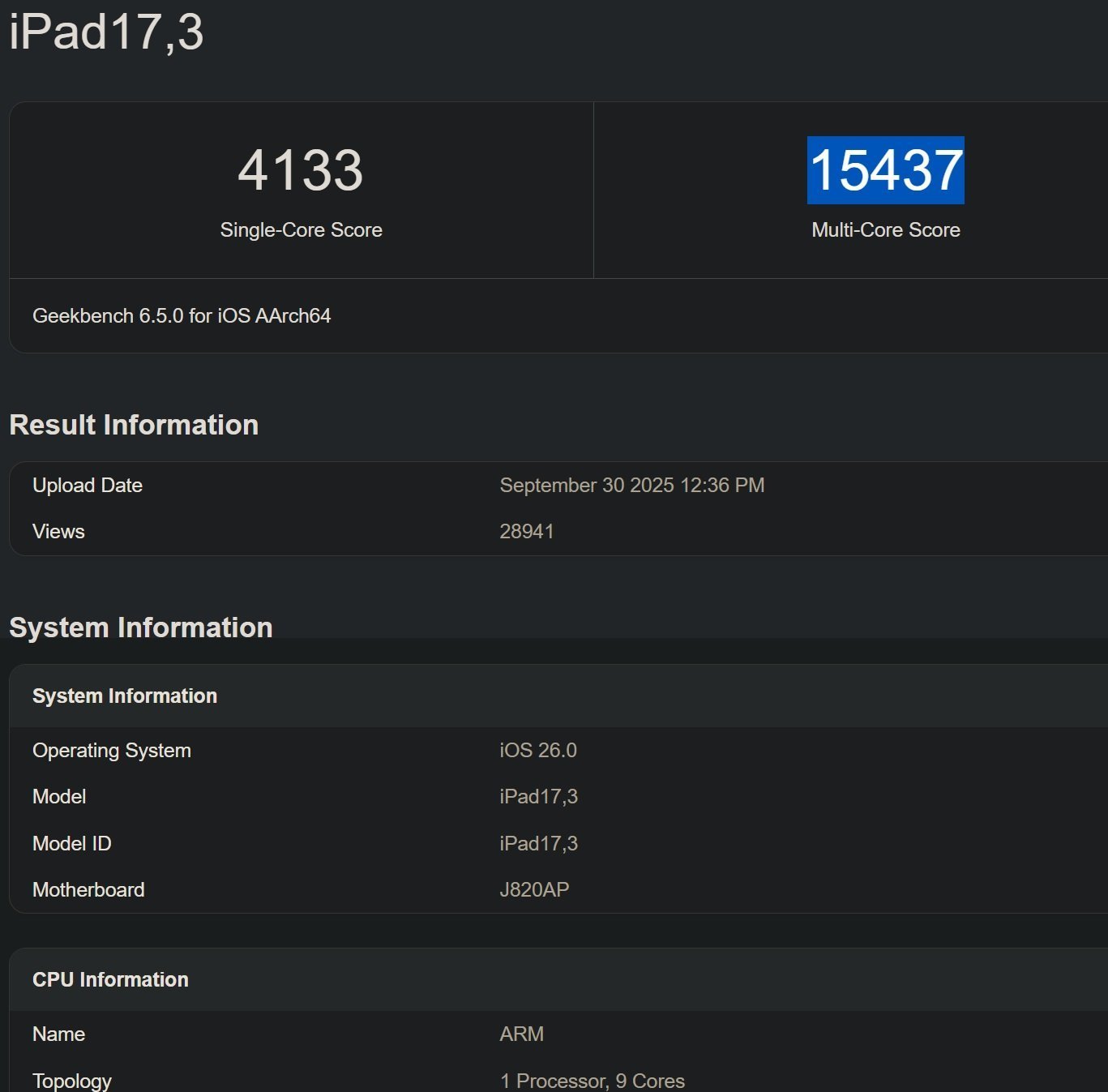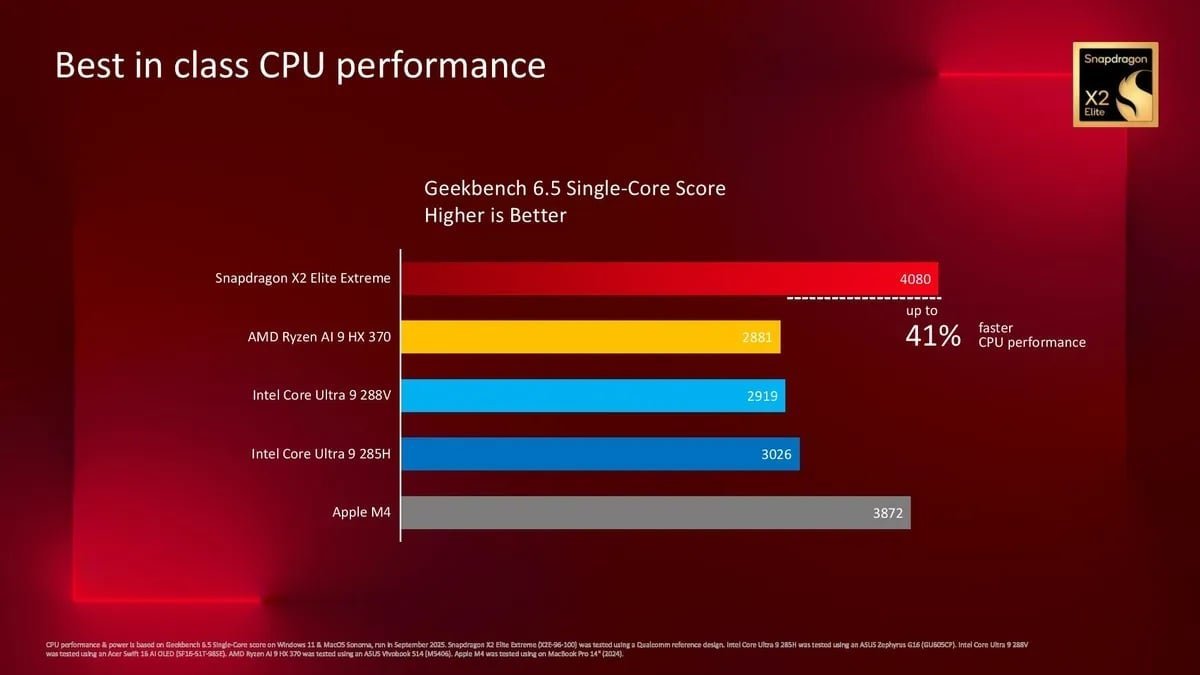A newly leaked Geekbench result reveals Apple's unreleased M5 chip powering an iPad Pro, delivering near-desktop performance with a 4,133 single-core score. The benchmark shows Apple maintaining single-thread dominance over Qualcomm's upcoming Snapdragon X Elite 2, while highlighting the efficiency gains in Apple's ARM architecture.

A surprise Geekbench listing has surfaced showing an unreleased iPad model running Apple's next-generation M5 processor, clocking unprecedented performance metrics for a tablet. The benchmark reveals a single-core score of 4,133 points and multi-core result of 15,437 points—figures that inch remarkably close to desktop-grade performance within a passively cooled mobile form factor. The chip operates at 4.42 GHz and pairs with 12GB RAM, suggesting Apple continues pushing the boundaries of thermal efficiency.
 Caption: Geekbench listing of the unreleased iPad with M5 chip
Caption: Geekbench listing of the unreleased iPad with M5 chip
What makes these numbers particularly compelling is how they stack against Qualcomm's flagship Snapdragon X Elite 2, designed for Windows laptops. Early benchmarks for Qualcomm's 18-core powerhouse show a 23,491 multi-core score (surpassing the M5's 15,437) but a slightly lower 4,080 single-core result. This narrow victory in single-thread performance—despite the iPad's thermal constraints—underscores Apple's architectural advantages.
"We're comparing an iPad with a full-fledged desktop CPU, and it's still competitive," notes the original report. This speaks volumes about Apple's per-core efficiency and frequency management at low power envelopes.
 Caption: Snapdragon X Elite 2 benchmark for comparison
Caption: Snapdragon X Elite 2 benchmark for comparison
The leaked data suggests Apple's M5 continues the company's tradition of maximizing performance-per-watt. While Qualcomm's chip leverages higher core counts (18 vs. Apple's rumored 10-12 cores) for superior multi-threaded throughput in laptop chassis, Apple maintains leadership in responsiveness-critical single-thread tasks. For developers, this signals that iPad Pro workflows—especially in pro apps like DaVinci Resolve or Xcode—will further blur the line between tablet and workstation capabilities.
As ARM architectures reshape computing landscapes, this leak foreshadows intensifying competition in high-efficiency silicon. Apple's ability to scale desktop-derived chips down to tablets creates pressure on rivals to match their vertical integration—while developers gain increasingly capable cross-platform targets.
Source: BleepingComputer

Comments
Please log in or register to join the discussion